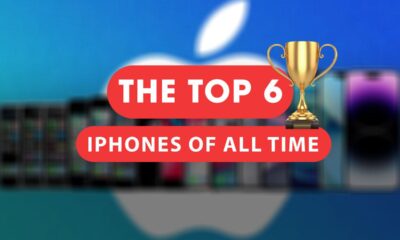Tech Reviews
Disruptive Technologies – A Guide to Understanding What is Coming to the Crop

In modern business theory, disruptive technology is an innovative innovation that creates a new, more lucrative market and value network, displacing established market-leading products, services, and alliances with significant market share. In theory, this means that once a firm or organization adopts a disruptive technology, it will likely be unable to remain in the current markets for a long time. This theory is sometimes called, “The Fifth Industrial Revolution.” However, even if this theory were correct, it would only be a temporary displacement. This is because many disruptive innovations, whether temporary or permanent, create new markets, or cause small firms to become larger, or cause large corporations to become smaller.
Still, many believe that it may happen in the future. This is because of the disruptive nature of many emerging technologies. These technologies include Artificial Intelligence, nanotechnology, digital communication technologies, and Internet technologies such as social networks, web services, and mobile devices. In fact, there is already one common characteristic of all these technologies – they are all disrupting the traditional industries in which they have been introduced. As a result, many people are saying that the coming of artificial intelligence, digital communication technologies, and the Internet of Things could cause a total collapse of the human economy. This may very well be true.
Artificial intelligence, digital communication technologies, and the Internet of things are not only disrupted, they are also converging, which means that they are becoming one and the same thing. It is hard to imagine the day when our artificial intelligence and digital communication technologies can’t simply sending a text message to another computer over the Internet without the person needing to log on to the other computer and initiate a conversation. We may, in the future, be able to purchase our groceries from vending machines that are robotic. We may be able to purchase dinner from a robotic waiter in every restaurant in the world.

The other emerging disruptive technology is edge computing. Edge computing is simply the integration of hardware and software together in new ways to deliver personalized computing. In the future, computers will be “smart” in order to recognize faces, understand languages, respond to user requests, recognize data, and process it in a faster and more accurate way than any human could. What we are seeing with edge computing is almost the evolution of the cell phone, where the smartphone is now being used as a device for much more than calling and sending text messages.
Of all the emerging technologies, perhaps the most disrupting would be artificial intelligence, digital innovation, and Internet technologies. Most people are scared of the thought of technology being so readily available, but as they become more comfortable with it, they will come to recognize how beneficial it can be. These three technologies are already transforming the way we live our lives in a very real way.
What are some of the most disruptive technologies currently shaping business and the world? The list is a long one, but some of the most notable include Artificial Intelligence, Digitalization, Cloud Computing, E-Commerce, Internet of Things (IoT), Mobile Application Development, Wearables, Wireless Networks, and Video Games. As you might expect, most of these disruptive technologies have already impacted different industries and business sectors. One important point to remember is that most of these technologies are disrupting industries and business sectors that have been in existence for decades. This means that if you are not in the industry, you probably know someone who is because most people in the tech industry are just getting started.
































